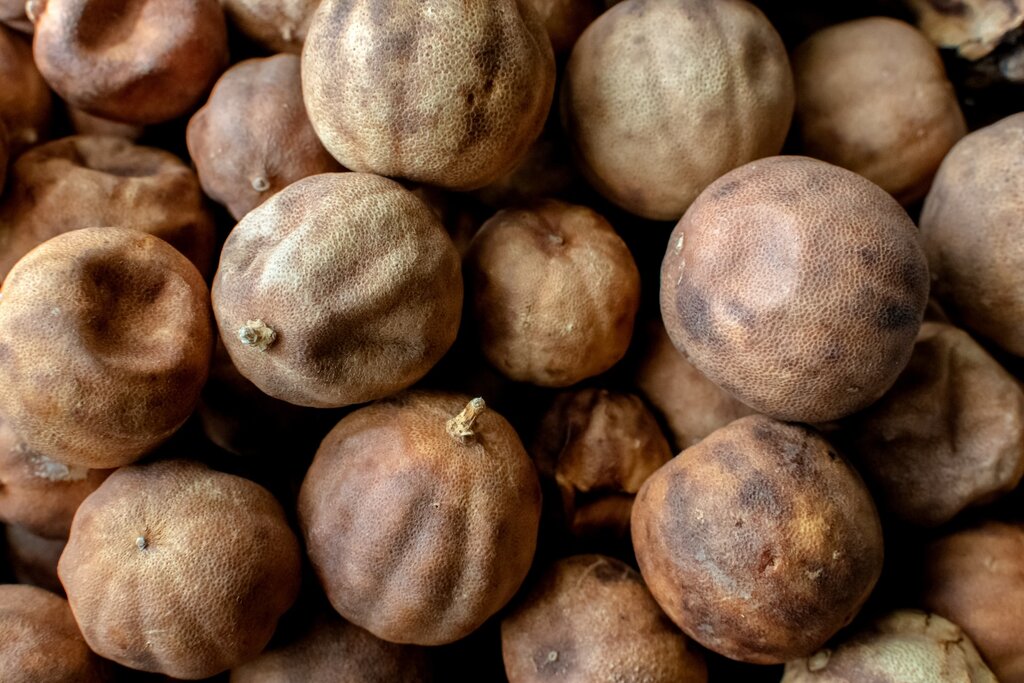Is Monk Fruit Good for You? Or is it just a fad?

Monk fruit is one of the latest health trends to take off in recent years. With its natural sweetness and lack of calories, this fruit is being praised as a "miracle" sugar substitute. But is monk fruit good for you? Or is it just another fad?
In this blog post, we'll examine the pros and cons of monk fruit, so you can make an informed decision about whether or not it's suitable for your diet. We'll also answer some of the most frequently asked questions about monk fruit, so you can decide if this all-natural sweetener should be part of your daily routine.
What is Monk Fruit?
A little spherical fruit known as a monk fruit grows on a vine in Asia's hilly regions. Many years ago, diabetes and obesity were treated using traditional Chinese Medicine.
The active ingredient in monk fruit is mogrosides, which are sweet-tasting compounds that are 150-200 times sweeter than table sugar. The body does not break down mogrosides like other sugars, so they do not contribute to blood sugar levels.
Monk fruit extract is often a natural sweetener in food and beverages. It is available in powder, liquid, and tablet forms. Monk fruit extract has no calories or carbohydrates and does not affect blood sugar levels.
The Benefits of Monk Fruit
In Asia's mountainous regions, a tiny, spherical fruit known as a monk fruit grows on a vine. The fruit has been used for centuries in traditional Chinese Medicine to treat various conditions.
Recent studies have shown that monk fruit extract can be up to 300 times sweeter than sugar, making it a potential alternative for reducing sugar intake. Monk fruit extract is also calorie-free and does not affect blood sugar levels adversely.
Monk fruit extract includes antioxidants that may have some health advantages in addition to its sweet flavor. One study showed that monk fruit extract could inhibit the growth of specific cancer cells. Other research has suggested that monk fruit extract may help improve blood sugar control in people with diabetes.
Monk fruit is a safe and healthful alternative to sugar for those wishing to reduce their calorie intake or blood sugar levels. At the same time, further research is needed to prove its potential health advantages.
The Different Types of Monk Fruit
There are three main types of monk fruit: fresh, dried, and powdered. Fresh monk fruit is the most perishable and should be used within a few days of purchase.
Dried monk fruit can be stored for up to a year and has a more concentrated sweetness than fresh monk fruit. Powdered monk fruit is the most shelf-stable form of the sweetener and can be used in baking or as a replacement for other sugar-based sweeteners.
The side effects of Monk Fruit
Monk fruit is a popular sugar substitute derived from a small melon-like fruit. At the same time, it is often touted as a "natural" sugar alternative, their potential side effects associated ted with its use.
The most common side effect of monk fruit is digestive upset. This can include symptoms like nausea, vomiting, bloating, and gas. It is advised to stop using monk fruit-containing products and consult your doctor if you develop any of these symptoms after doing so.
Another potential side effect of monk fruit is an allergic reaction. Some people may be allergic to the compounds in monk fruit that give it its sweetness.
Hives, swelling, wheezing, and anaphylaxis are some signs of an allergic reaction. If you have any concerns about whether or not you may be allergic to monk fruit, it's best to speak with your doctor before consuming anything containing it.
Finally, because monk fruit is a relatively new sugar substitute on the market, there needs to be more research available on its long-term safety. Therefore, speaking with your doctor before making any decisions about using it regularly is essential.
How to use Monk Fruit
Monk fruit is a popular sugar alternative derived from the Virginia grosvenorii plant. Long used as a natural sweetener, the fruit is increasingly gaining interest outside traditional Chinese Medicine. Monk fruit is about 200 times sweeter than sugar, so it can be used to sweeten beverages and foods without adding calories.
To use monk fruit, add it to your desired food or beverage in place of sugar. For example, if you make a smoothie, you could add monk fruit instead of sugar to sweeten it. Or, if you are baking a cake, you could use monk fruit instead of sugar in the recipe.
Just be sure to start with a small amount and increase to taste, as monk fruit can be much sweeter than sugar.
Conclusion
In conclusion, monk fruit is a natural sweetener that may provide health benefits such as antioxidants and anti-inflammatory properties. While more research needs to be done on its full effects, it is a safe alternative for people looking to reduce their sugar consumption.
Whether monk fruit is just another fad or if it will become an essential part of our diets remains to be seen, but either way, this natural sweetener could have some potential health benefits.
